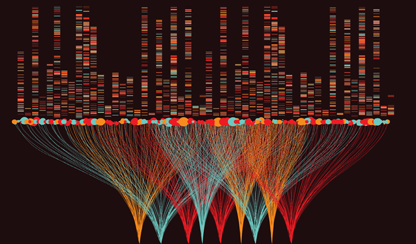17 March 2023
Institute news

We are pleased to announce that Dr Kevin Huynh and Professor Judy de Haan have secured 2023 Diabetes Australia Research Program (DARP) General Grants to support their important diabetes research.
Kevin’s exciting work developing a metabolic score to identify impaired glucose tolerance without the traditional fasting oral glucose tolerance test, and thus help predict type 2 diabetes risk, will be supported by the grant.
“We aim to use lipidomic measures in fasting plasma to develop and validate scores that enable classification of impaired glucose tolerance, without an oral glucose tolerance test,” Kevin said.
“These scores will use measures of different lipids (fats) that can be acquired using a small drop of blood obtained from a normal fasting blood sample. Currently, impairment to glucose tolerance can only be assessed using an oral glucose tolerance test, which can be inconvenient, time consuming and costly.
“The models will be generated using the existing plasma samples from the AusDiab study. We also hope to further demonstrate the diagnostic and prognostic value of these scores, above traditional measurements, in assessing 5-year risk of type 2 diabetes.”
Judy’s grant will support her work that aims to limit cardiac injury following a heart attack for people with type 2 diabetes by inhibiting a protein that drives an ongoing inflammatory response after a heart attack. The inflammation causes cardiac injury that often leads to heart failure.
People living with type 2 diabetes who survive a heart attack are at an increased risk of heart failure in the following months and years as many people with diabetes don’t respond adequately to the standard treatment, which includes anti-diabetic, anti-hypertensive, or lipid-lowering drugs.
“Newer treatments are urgently needed,” Judy said. “It’s now evident that inflammation plays a key role in driving cardiac injury after a heart attack. Our work will explore the role that the key pore-forming protein called GasderminD plays after a heart attack to promote the ongoing inflammatory response, and we will identify a small molecule inhibitor of the GasderminD pore as a novel therapy to lessen heart failure after a heart attack.&rdquo By targeting inflammation in this unique manner, Judy’s team hopes to be the first to show that targeting this structural pore has therapeutic potential to limit cardiac injury after a heart attack and improve the lives of type 2 diabetic patients with comorbid hypertension who have survived a heart attack yet face debilitating cardiac failure.
The DARP grants will support Kevin and Judy’s work for 12 months.





